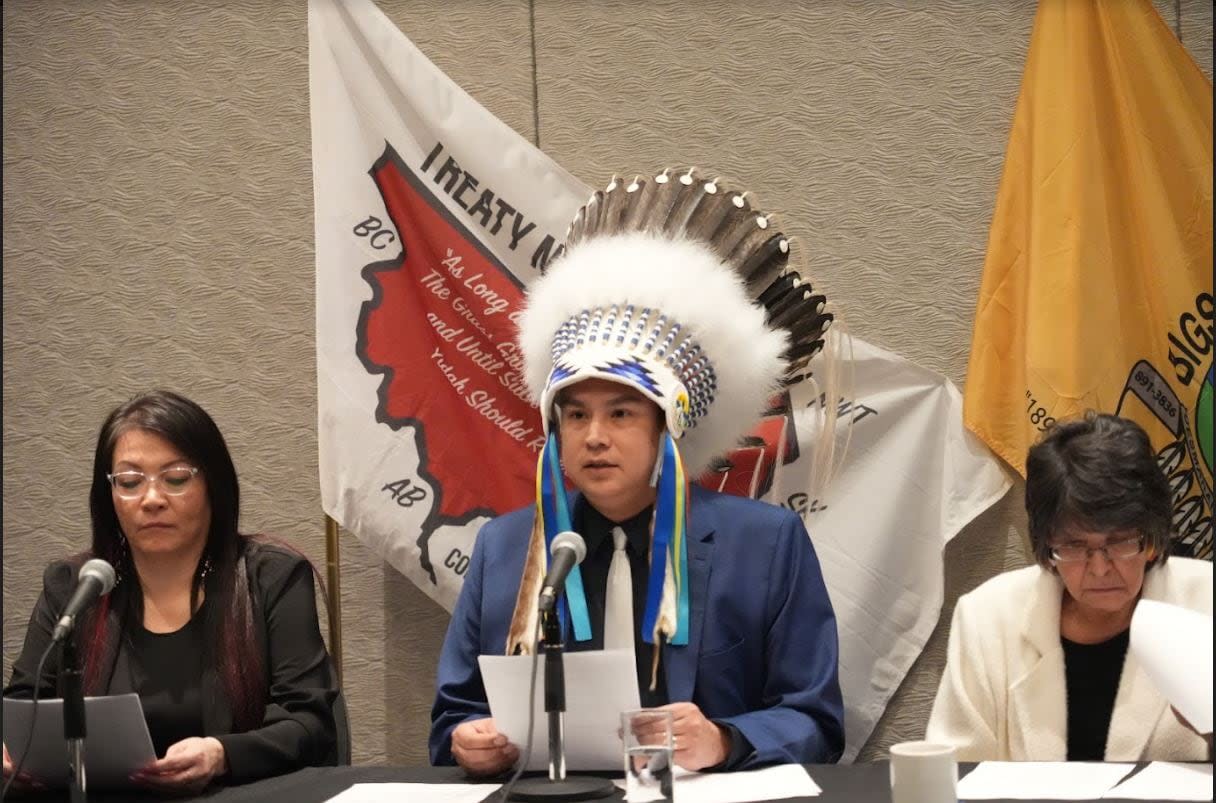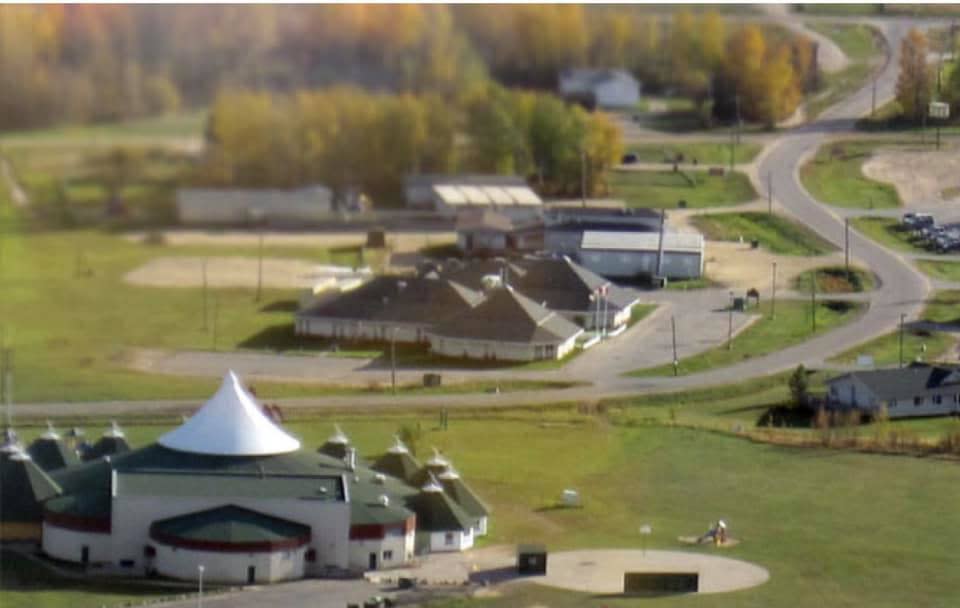Bigstone Cree Nation declares state of local emergency due to mental health, addictions issues

The Bigstone Cree Nation in northern Alberta has declared a state of local emergency due to a rise in violent crime, mental health issues and addictions among community members.
Chief Andy Alook said immediate intervention is needed from all levels of government in the communities of Calling Lake and Wabasca, to address social disorder and a mental health crisis in the communities.
"Drug abuse is a major cause of social concerns and issues in Bigstone Cree Nation communities and Indigenous youth and members are dying from an increased supply of highly addictive illegal drugs," Alook said during a news conference Wednesday.
Alook did not provide an exact number but said multiple suicides and addictions-related deaths have been reported.
The state of local emergency was declared Wednesday following a vote by the chief and council.
It is the second announcement declaring a state of local emergency. In a news release, Bigstone Cree Nation said the second declaration comes after after a lack of response from an initial announcement on Jan. 8 calling on all levels of government to address mental health and addictions-related issues in the community.
In a statement, Indigenous Services Canada said it is incontact with the First Nation, working with leadership on short- and long-term solutions to the crisis.It is continuing to work with partners to help communities — including Bigstone Cree Nation and others within Treaty 8 territory — to address the continuum of care for mental wellness and addressing social determinants of health, a ministry spokesperson said.
With a population of more than 10,000 members sprawling across urban centres and rural communities, Alook said the First Nation is grappling with scarce resources to support all its members.
He said restricted capacities from local health services, security issues, poverty, and a housing crisis in the communities are compounding the crisis, which led to the emergency announcement.
"No more providing Band-Aid funding and programs. We must get to the root cause of these issues and really deal with the healing and prevention, not crisis management," Alook said.
"People are dying.
"We will no longer sit back and watch these issues go unnoticed."

Chief Andy Alook said restricted capacities from local health services, security issues, poverty, and a housing crisis in the communities led to the emergency announcement. (Submitted by Bigstone Cree Nation)
During the announcement, Alook referenced the mandate letters Premier Danielle Smith issued to cabinet ministers following the May 2023 election.
In Smith's mandate letter to Mental Health and Addictions Minister Dan Williams, she calls on him to pursue a recovery-based approach to combat addiction at an accelerated pace.
The letter requests for Williams to work with the Minister of Indigenous Relations Rick Wilson to provide Indigenous people with mental health and addiction services without disruption from jurisdictional disputes.
In a statement, the Mental Health and Addictions ministry said it's concerned with the addictions issues in the community.
"Our government is deeply concerned about the damage caused by addiction and offers condolences to the community, families, and loved ones who have lost loved ones to this deadly disease," said Hunter Baril, press secretary for the office of the minister of mental health and addictions in a statement to CBC News.
Baril said the Alberta government added more than 10,000 addiction treatment spaces and expanded its virtual opioid dependency program to give Albertans access to same-day, no waitlist treatment medication.
He said the province is continuing to build 11 recovery communities — a group-based approach to addiction recovery.
"Alberta's government has been building a system of recovery, giving all Albertans that opportunity to reunite and rejoin their culture and community," Baril said.
The Indigenous Services Canada spokesperson said theere are several "investments and initiatives" through which the First Nation is receiving support, such as naloxone kits and enhancements to the six Nation Native Alcohol and Drug Abuse Program treatment centres in Alberta.
Bigstone Cree Nation has an enhanced regional crisis response team, which has three staff members to respond to mental health crises "locally and regionally," and it receives funding to be spent on in-community mental wellness, such as prevention, crisis response and trauma-informed health, the spokesperson said.
Chief Alook said he's had meetings with the Athabasca RCMP detachment over a lack of RCMP presence and the long response times for emergency calls.
"The geography of our communities is unique…and the response times are different," Alook said.
He said emergency calls to Chipewyan Lake can take up to four hours for a response with the nearest RCMP detachment being 305 kilometres south.
"We've also looked at other policing models, including First Nations policing. So we are exploring those models now," he said.
"We are also working towards the best police force or the best justice system that has not served the needs of our communities."

